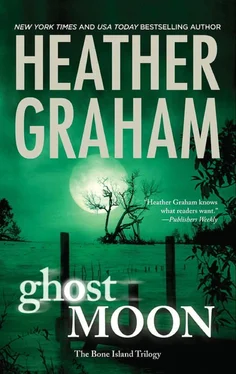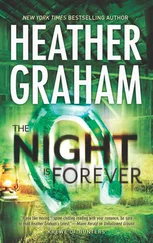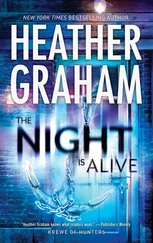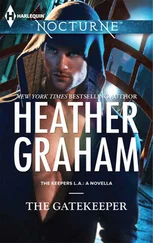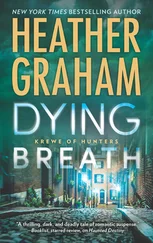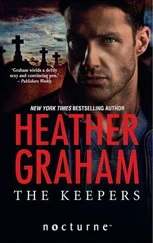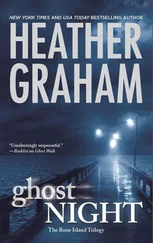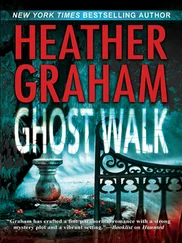The room was cast in the eerie bloodred that was darkened by the shadows of the coming night.
It had once been beautiful, with Italian marble floors, elegant throw rugs and crimson Duncan Fife furnishings. Over the years, it had become cluttered, and not with the usual accumulation of silly souvenirs, magazines or papers. There were boxes everywhere. A suit of armor—real—stood in a corner, near a Victorian coffin with a window at the head and a painting beneath the window to display how the dead might have been shown. A mummy case lay to one side of the fireplace, and an authentic voodoo altar lay to the right. A glass dome covered a shrunken head he knew to be from New Guinea, and a stuffed raven took precedence on the mantel. Everywhere you looked, there was an artifact from somewhere, some in pristine condition, others worn and falling apart. Animal heads adorned the walls along with African masks and feathered spears.
There was so much in the room to attract the eye in the strange mixture of shadow and light that Liam didn’t even see the dead man at first.
And then he did.
Like one of his relics, Cutter Merlin was covered in a thin patina of dust. A spider had spun her web from the edge of Cutter’s reading glasses to the armrest of the rocking chair on which he sat.
Liam felt his heart sink. He’d known, of course. He found himself suddenly wishing that he—or someone—had kept up with the old recluse. Cutter Merlin had always been kind to children. He’d been filled with wonderful tales about distant lands: Asia, Far East, Middle East, the jungles of South America and the sands of the Sahara desert. But his daughter had died, his son-in-law and granddaughter had moved away and he had closed himself in with his treasures. Then there had been the strange rumors about the old hermit and his collections. He practiced black magic. He made deals with the devil.
He sat now, just sat, a book in his hands, dust motes dancing in the crimson air around him. Old and frail, his hair long and white, his cheeks covered in a stubble of white beard, he looked as if he might speak. But, of course, he would never speak again.
“Ah, Mr. Merlin!” Liam said softly, walking toward the old man. He noted then that the corpse’s mouth was slightly open, while its eyes were wide-open as well behind steel-framed reading glasses. It was as if Cutter Merlin had died staring toward the foyer and the grand front entry, terrified of whatever he saw there. The expression on his face was so filled with horror that Liam found himself turning to look.
But there was nothing there. He turned and came down on one knee by the corpse. He realized that he would be saturated with the smell of death when he left, but it didn’t matter; he had known the man. He was a sad old fellow who had given a great deal, and he had died alone, in fear.
He sighed softly, shaking his head sadly. He took out his cell and called in the death; the medical examiner would arrive soon.
There wasn’t a terrible rush; Cutter Merlin was dead. The spider that had spun the web about him emerged from the old man’s mouth, causing Liam to start and shudder—and be glad that no one had been there to see his horrified reaction.
Liam frowned, noting the book on the old man’s lap. It was large, with gold trim on the pages, and Liam judged it to be a hundred or more years old. He carefully lifted the cover, but the bloodred twilight was turning to darker and darker shadow, so he took his flashlight from his pocket, carefully lifting the book with the tip of the light.
In Defense from Dark Magick.
There was something in the old man’s hand, as well. Liam knew not to touch him until the M.E. came, but he was curious, and it hardly appeared that this could be a case of murder. An old man had scared himself, and died from a heart attack.
His gloves were in the car, so he used the tip of the small laser light to shift the hand and see what was clutched in the fingers. The old man had long since gone in and out of rigor, so he wasn’t stiff, and Liam was easily able to see what he clutched.
It was a casket, a little gold casket, like a jewelry box with its lid open for a special piece. Liam hadn’t been an altar boy, but he had been brought to church every Sunday when he’d been growing up. It seemed to him that the box was some kind of reliquary. It appeared to contain a small gold ball, filigreed, with the ball designed to fit into the casket, and the casket designed just to fit the ball.
Beneath the book on his lap, Cutter held an old sawed-off shotgun.
“What were you doing, old man?” Liam asked softly aloud. He shook his head and stood, looking around the room again. Boxes and crates and pieces—some priceless, some surely pure junk—seemed piled en masse. Now, the shadows stretched out like bone-fingered tentacles. Liam walked across the room to the main entrance, and, once again with his flashlight, studied the door. Odd. Cutter Merlin had prepared his dinner, simple soup and a sandwich. But he had never eaten it. He had taken a book and an old relic and gone to sit in his rocking chair by the fire, staring at the front door.
Staring as if he were waiting for someone, but with a book and gold casket as his weapons, along with a sawed-off shotgun. He hadn’t pulled out the shotgun to aim at anyone; it remained on his lap, beneath the book.
Cutter Merlin had been called eccentric as long as Liam could remember.
In the last years, he had been referred to as a crazy hermit. To keep their children from playing near the shoreline where the boats came and the water could suddenly become deep, local parents had warned that the man was loony, that he might have been the devil.
The front door was locked. In fact, there were three bolts on the door now, and they were all secured.
It was as if Cutter Merlin had become quite frightened of some visitor in his dotage. Who?
He’d probably begun to suffer dementia. Alzheimer’s. And none of them had really known. Or cared. Liam felt horrible again; how had they all forgotten this man?
He walked back to the corpse. Cutter still stared at the door in fear—and determination. He had been clutching the little casket as if his life had depended upon it.
“Poor old fellow,” Liam said. “You were always good to me. I’m sorry that I forgot you.”
Hearing the approach of the M.E.’s car, he returned to the door. He was about to unlatch the locks when he decided that he just might want to investigate the death further. He headed into the kitchen for a towel and covered his fingers to unlatch the bolts.
The M.E. was Franklin Valaski, a veteran of many a death, natural and unnatural. He was nearly Cutter Merlin’s own age, or at least he looked nearly as old. Maybe his years observing death had made him old early and given him that look of an old bulldog. He was short, stout, wrinkled and excellent at his job. He was followed by an assistant, one of the dieners at the morgue, who bore a stretcher.
“So, old Merlin finally bit the dust, eh?” Valaski said, shaking his head. “Tell you the truth, I had all but forgotten the old bastard was out here.”
“Sad, huh?” Liam murmured. “Looks like a heart attack.”
“Lead the way,” Valaski said.
Liam pointed to the rocking chair, and Valaski went on over to the corpse. The young diener nodded an appropriately grim greeting to Liam, which Liam returned, and then stared around the house.
The diener was gaping at what he saw.
You didn’t know Merlin! Liam thought.
Then, naturally, he found himself thinking about Kelsey. Her mother had died here. He didn’t know much about it—he had been fifteen at the time. It had been a tragic accident, he knew, and Kelsey’s father hadn’t wanted to do anything except escape Key West—and the place where his beloved wife had perished.
Читать дальше
